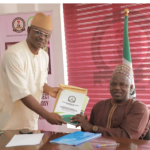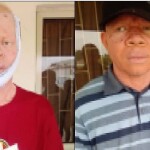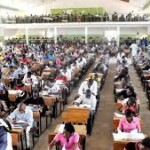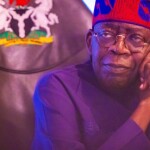The NCPWD pioneer Executive Secretary Lalu lost his bearings in Nigeria’s disability space for five years. His successor hasn’t showed any sense of direction
Ayuba Gufwan hasn’t got time to settle in for work yet at the National Commission for Persons With Disabilities (NCPWD). The euphoria of his appointment still hangs in the air. Since he replaced James Lalu in August, Gufwan has busied himself up with housekeeping. It’s a feature of Nigeria’s bureaucracy. Even if it takes him a year to get down to work, disability watchers might not consider this much of a disappointment. Lalu, after all, spent his entire five years kicking the can, all the way.
It's not clear why President Bola Tinubu picked up a lawyer turned wheelchair-maker and founder of the Beautiful Gates Handicapped Peoples Centre to lead a commission battling teething problem. With this appointment, however, one thing is assured: large servings of charity garnished with inspiration porn.
The party is already in full swing.
“Now is the moment of renewed hope for persons living with disabilities in Nigeria,” Gufwan said while receiving Abba-Issa, Tinubu’s special assistant on Special Needs and Equal Opportunities.
That tone permeates the six major press releases the NCPWD media handlers have churned out so far; they all brim with similar effusions (Lalu made NCPWD a beacon of hope, felicitations, congratulations, and reiterations. None addresses reforms in the commission’s core responsibility. Experts have emphasized mainstreaming disability policies across MDAs is the only reason the commission exists—a reason Lalu disregarded.
And the closest Gufwan himself has got to talking disability policy is his commitment to an ‘open-door policy’. He made no reference, and never laid out any particular policy focus when he reassured the visiting Pioneers of the Nigerian National and International Disability Civil Rights Movement and Policy Chapters.
Lalu started out same way. And the commission under him pottered about from 2019 to 2024. He had to hide this, though, by projecting an up-and-doing image at every opportunity. Eye service then came handy. This, at any rate, requires acting outside the commission’s mandate, which is, basically, coordination. So Lalu pushed his pen into overdrive, signing MoUs with no fewer than six companies, parastatals, and NGOs. He made the commission have a pact with NASENI to manufacture assistive devices, and even sourced N20 billion in foreign direct investment in June for effect. He was also on the look-out for some wizkids cobbling up widgets that can make the blind see, and the deaf hear again. On those occasions the innovators he got were NGOs and OPDs, Lalu ensured the commission inked agreements to take over some of their donor-funded projects.
The Discrimination Act that established the commission empowers it to carry out 18 functions. Only one of them, in section 29j, has to do with big works execution: establishing inclusive schools. Section 29r adds procurement of assistive devices, of all contractual functions, to the list. The three provisions for collaboration are mainly for effecting compliance and enforcement.
But the former ES seemed to enjoy collaborating to execute eye-popping brick-and-mortar-projects: like the federal road construction and rehabilitation it once budgeted for in Imo in 2021 and 2022. Even if when a contract was a service, it had to loom larger than necessary. He made a buzz of collaborating with the National Orientation Agency in 2022 and the Ministry of Information last July. Yet the disability law, in section 2, specifically tasks the ministry with the disability awareness responsibility.
According to analysts, the commission’s over-arching function is the breaking down of the Act’s provisions into their policy elements. Relevant MDAs can then make sense of the frameworks for inclusion and implementation in their own programmes.
Where things work, all these policy efforts go on behind the scene, in a sustained manner. But the NCPWD managers prefer the razzmatazz that goes with one-off proclamations of collaboration and MoU signing. Lalu was always hopping from one photo-op to another. His goons in the media then spun the press statements that followed. And, after a while, the sizzles ended there.
His promises to execute projects and finance contracts hardly got any scrutiny later. That helped him get away with papering over the holes in the commission’s procurement. In the scanty data its procurement department made available on the government procurement portal, ER early in the year uncovered over a billion naira in mismanaged funds. Perennial budgeting for braille shops with none to show for it; annual allocations too small to probe for a string of big projects the commission knew it couldn’t execute—these and others shenanigans dotted Lalu’s procurement regime. The commission board ignored these atrocities, and the House Committee on Disability praised the perpetrator as the first-rate financial manager the ommission ever had.
Disability managers that have no clue about disability governance can actually fare no better than Lalu. All they do is dust off the charity model, and inspire the world with every escapade of PWDs nobody gives a chance. It’s some big achievement—that the commission can make the world swoon at Nigerian paralympians carting away medals. This only betrays Lalu and many of his state counterparts’ lack of a systematic approach they need to ensure equality, inclusion, and diversity. For PWD’s rights violation, back then, when he pleased, Lalu would choose whose cause to push. Many in the disability community considered this selective—because he favored only the well-connected.
And so Lalu carried on like that for five years, and ended up with nothing of consequence the NCPWD can claim it achieved.
Except what Gufwan saw during the handing-over: Lalu’s strong “foundation upon which we can build further”.
Gufwan, no doubt, is striking out in the same old direction. That is easy to see because he hasn’t put his best foot forward, the very thing a prepared appointee does. No fewer than 30 million Nigerians may have to endure another five years of no-show—if all the ‘chief’ plans now is to build on Lalu’s foundation, and reiterate the dawn of renewed hope. Procurement corruption, poor budgeting, and politicking continue—at the expense of competence.
It won’t hurt Gufwan as such if the commission flops again. It never hurt his predecessor. Nothing personal is usually at stake for NCPWD’s executive secretary that goofs. At worst their boss in the Humanitarian Affairs Ministry takes the fall. The probe of former Minister Beta Edu’s corruption didn’t extend to the NCPWD. If it did at all, it was just a ceremony. Lalu still managed to weasel out.
Anybody can. Especially with the horde of enablers on the commission’s board, the House Committee on Disability, and in the media.







